Southern Hoops: A History of SEC Basketball details Adolph Rupp's polarizing legacy at Kentucky
You can’t tell the story of the Southeastern Conference without Kentucky basketball. And you can’t tell the story about Kentucky basketball without Adolph Rupp, who arrived in Lexington in 1930 to take over as the program’s head coach.
It’s where Kentucky’s rich history began, the start of the greatest tradition in college basketball. So when you’re telling the story of SEC basketball and its history, it’s fair to start there. And that’s exactly what Southern Hoops: A History of SEC Basketball, a seven-part documentary set to debut on SEC Network that chronicles the origin and progression of basketball in the SEC, decided to do.
Debuting tonight, Monday, Jan. 30 at 9 p.m. ET, part one of the documentary goes back to the beginning of basketball itself. From Naismith to Rupp is the debut episode, one that shares the story of a young Adolph Rupp, who got his start at the University of Kansas as a player under legendary coach Phog Allen. While he didn’t score a single point in his three years as a Jayhawk, he did take Physical Education classes under none other than James Naismith, the inventor of basketball.
Rupp’s move to Lexington
The documentary highlights his transition from student-athlete, learning from two of the sport’s greatest pioneers, to his high school coaching career. From there, his decision to drive from Illinois to Lexington for an interview with the school, one of 70 candidates for the position. His peers pushed against the potential move — it came at a time Kentucky simply wasn’t seen as the destination job it is today. The program hoped to find someone with dreams of excellence, someone capable of building a contender from the ground up, undoubtedly a tall task.
The 29-year-old earned the opportunity thanks to his charm and boundless confidence, claiming in his interview for the position he was “the best damn basketball coach in the country.”
From Naismith to Rupp features interviews with former Kentucky stars Cotton Nash (1961-64), Dan Issel (1968-70), Mike Pratt (1967-70) and Richie Farmer (1988-92) sharing their experiences with Rupp and the foundation he laid in Lexington to create a permanent standard of perfection as head coach and for those who would follow.
The Baron’s push for greatness
It started with his demands in practice, one where he made it clear he was the teacher and his players were the students. Rupp wanted his offensive strategies — simple and basic, but fundamentally sound with a focus on ball movement and quickness — heard loud and clear. “His practices, they were like going to church — nobody spoke,” narrator Omari Hardwick said.
“‘This is my classroom,'” the late Mike Pratt said of his former coach’s message. “‘I don’t want to hear any noise, any talk, except the sneakers’ squeak.’ … He wanted perfection, he just expected you to go out and do what he trained you for.”
“We don’t have a magic formula,” Rupp followed. “What we do have is some fundamental drills and very excellent plays.”
That standard of excellence resulted in decades of success for Kentucky under Rupp, racking up 876 career wins from 1930 to 1972, a 41-season run in Lexington that included four national championships, 13 SEC Tournament championships and 28 SEC regular season titles. The Wildcats were at the top of the basketball world and dominated the conference, raking in star talent and wins at an unprecedented rate.
Kentucky’s point shaving scandal
That run, though, wasn’t without speed bumps — some significant. A gambling scandal took over the college basketball world in 1950-51, with 32 players across seven schools incriminated for point shaving. Rupp infamously claimed “fixers couldn’t touch my boys with a ten-foot pole,” words he’d later have to eat, as Wildcat standouts Alex Groza, Ralph Beard and Dale Barnstable were all arrested and charged for their participation. The bulk of their cheating came in games between 1947-50 at the NIT in Madison Square Garden.
Kentucky’s 1952-53 season was canceled and Rupp’s reputation took a significant hit — he was tied to the shaving, but was found to have connections to bookies and paid players after big wins.
“How could we suspect our boys when they were making all these fine records, going to the Olympics, everything like that, that they were gambling?” Rupp said in the documentary.
It took the legendary coach years to recover in the eyes of fans, many calling for his job at the time.
Late to integrate
From Naismith to Rupp also highlighted the former Kentucky coach’s complicated history with integration, starting with Don Barksdale, the first Black player on the United States Olympic basketball team in 1948 where Rupp was an assistant coach. Playing exhibition games leading up to the Olympic games at the time, Barksdale wasn’t allowed to stay with the rest of the team at the hotel during a stop in Lexington. The future NBA All-Star with the Boston Celtics said Rupp was a great friend of his during the trip to London for the ’48 Olympics — where he was able to stay with his teammates inside the Olympic Village — but added that the Kentucky coach told him he wished things were different, “but there’s nothing you or I can do about it.”
Three years later in 1951, St. John’s — an integrated team — came to Lexington, where star guard Solly Walker became the first Black player to take the floor at Memorial Coliseum. Rupp asked the crowd to “behave,” and the game came and went without incident. That came a year after Rupp helped Jim Tucker, a Black high school player from Paris, KY, get a scholarship at Duquesne in Pittsburgh.
Race relations weren’t the entire focus of part one of Southern Hoops: A History of SEC Basketball, with Rupp’s on-court success and the explosion of Kentucky hoops making up the bulk of the episode. But the early complications were fairly addressed, with more to come in future episodes of the seven-part series — again, a Black player did not take the floor for the Wildcats until 1970-71.
“Rupp had all sorts of human qualities: arrogance, stubbornness, the pride that comes with success,” Alex Wolff, formerly of Sports Illustrated (1980-2016), said in the documentary. “All of which, you kind of blend them together causes someone to — well, it’s kind of the seed of bigotry. Judging people reflexively, not being open-minded or willing to change.”
“I wanted to let the audience make up their own mind”
The legendary coach would soon be immersed in one of the great conflicts of the 20th century: the civil rights movement in the 60s. “The Black athlete was the coming story of sports, especially basketball,” Hardwick narrated. Players recruited were reminded they would not be able to be protected from the hostility in the South. Integration would come, but it took time.
“I don’t think we uncovered any huge surprises, I just think what we tried to do was give Rupp his just due,” Southern Hoops: A History of SEC Basketball director Fritz Michell told KSR. “Too many people try to indict Rupp or are apologists for Rupp because of the racial angle, and I tried not to do that. I tried to show both sides of Rupp, a nuanced man and a complex man. I wanted to let the audience make up their own mind about how they feel about him.”
At the end of the day, Rupp is the reason the gold standard of Kentucky basketball exists, the winning tradition. “He was the king of the sport, no one better than him,” Cotton Nash said of his former coach.
Sure, he had an ego, but “he could afford to have a little ego,” Nash added. “… If we won the game, his first comments were, ‘These boys did exactly what I told them to do.’ If we lost, it was, ‘These boys didn’t do a damn thing I told them to do.'”
A complicated legacy
He embraced the bright lights and loved the publicity. Rupp helped build Memorial Coliseum for that reason, the largest arena in the South when it opened in 1950 — “a palace for basketball the Baron created.”
At his peak, he had the program wrapped around his finger.
“My dear Coach Rupp, I do not know how to convey to you the pride we have in you and your boys who have covered themselves with glory on the basketball court,” UK President Herman L. Donovan wrote in a letter to Rupp in 1949.
But his tenure wasn’t limited to unprecedented success on the floor. That’s not the only lasting impact.
“Basketball becomes this vehicle that drives the state’s economy, drives the state’s national prominence,” Dr. Gerald Smith, Kentucky history professor, said in the documentary. “But at the same time, you have to think about — at what expense? Who are the real winners and losers here? For most of those years, African-Americans were on the losing side.”
Part one of Southern Hoops: A History of SEC Basketball dives into the Baron of the Bluegrass’ complicated legacy starting tonight at 9 p.m. ET on SEC Network. A new episode will debut every Monday evening at the same time through March 13, with future parts highlighting Texas Western’s historic win over Kentucky in the 1966 title game, the transition to Joe B. Hall and the program’s first title in 20 years, returning to prominence under Rick Pitino, Tubby Smith becoming the first Black coach at Kentucky and his 1998 championship and John Calipari continuing the tradition of excellence in Lexington.
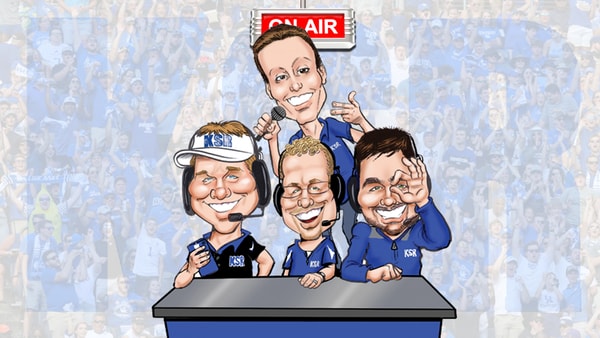
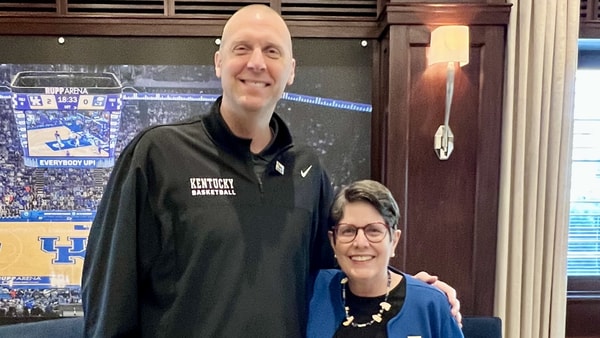

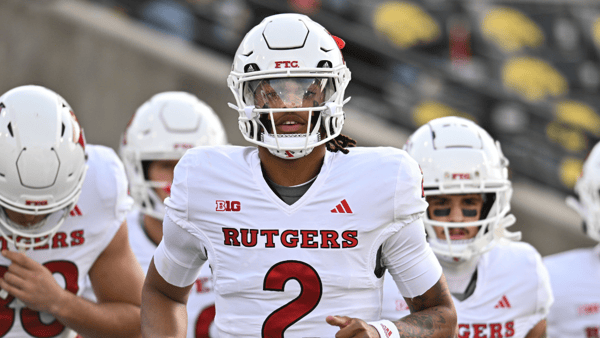
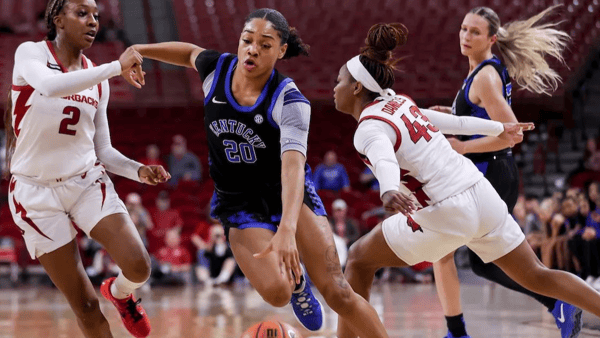
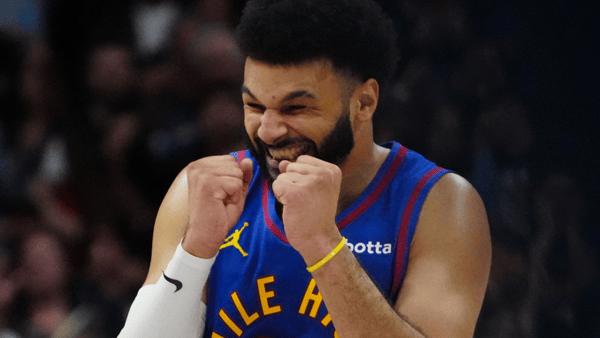


Discuss This Article
Comments have moved.
Join the conversation and talk about this article and all things Kentucky Sports in the new KSR Message Board.
KSBoard